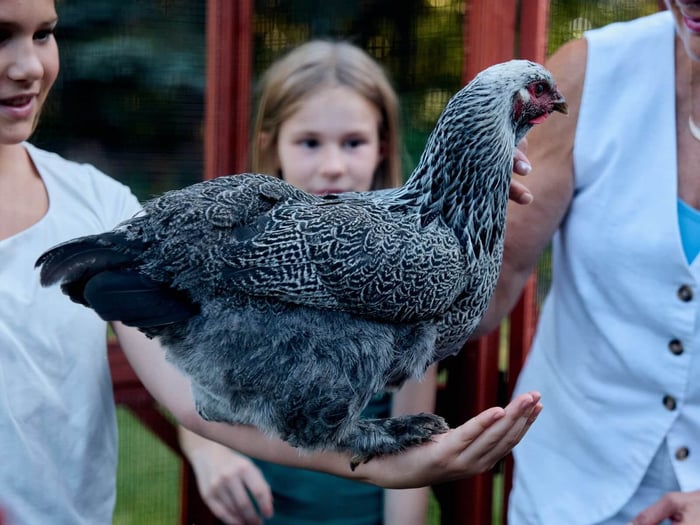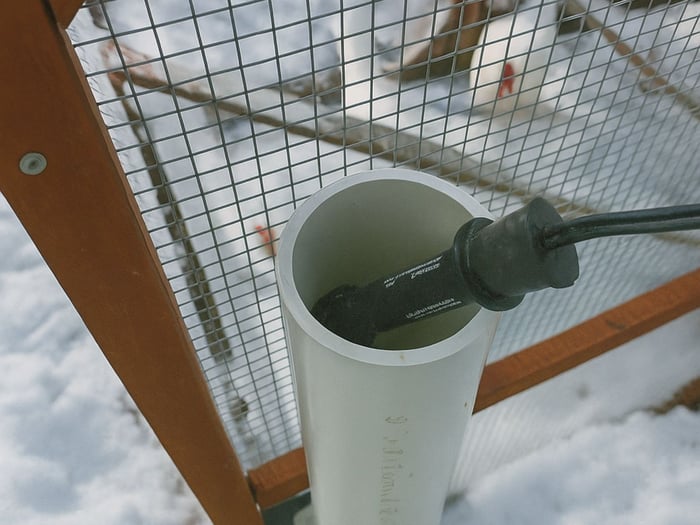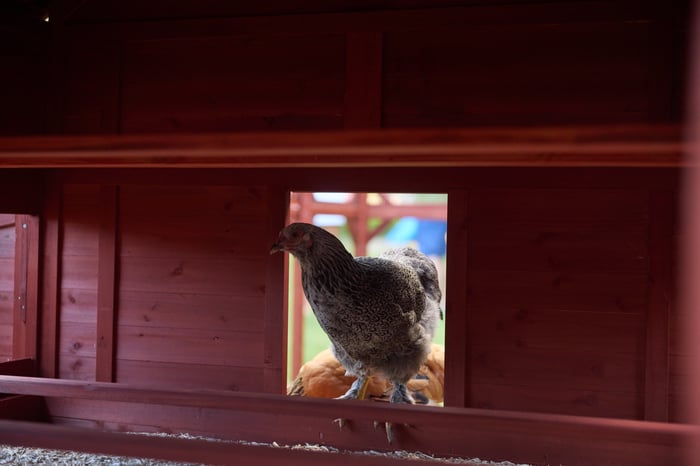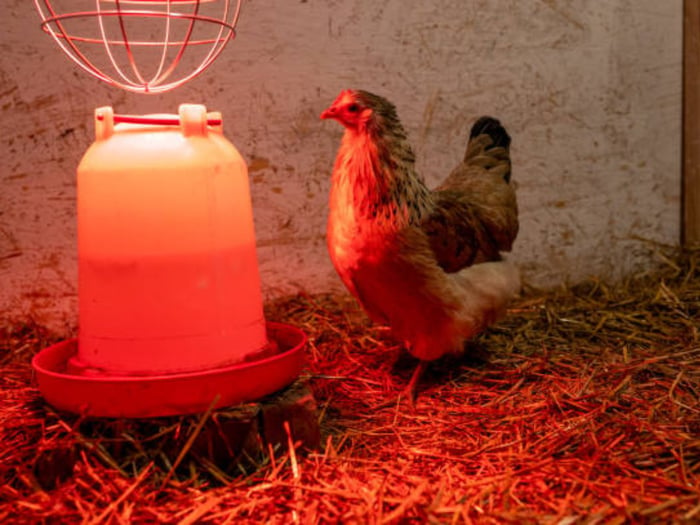Table of Contents
-
- Backyard Chicken Myths That Need to Go Away
- 1. You need a rooster to get eggs.
- 2. Chickens smell terrible.
- 3. Chickens are dirty animals.
- 4. Raising chickens takes too much time.
- 5. Chickens attract rodents and pests.
- 6. You can only raise chickens if you live in the country.
- 7. Chickens aren’t affectionate or smart.
- 8. You’ll save money raising chickens.
- 9. Chickens are noisy!
- 10. Chickens can handle any weather on their own.
- The Truth About Backyard Chickens
- FAQs
Backyard Chicken Myths That Need to Go Away
If you ever thought about having chickens, odds are you may have stumbled upon some deceiving backyard chicken myths.
We hear it all the time, the same tired backyard chicken myths passed around until people start believing them. But the truth? Most of them aren’t just wrong… they’re what’s stopping families from enjoying one of the most rewarding (and surprisingly simple) backyard hobbies out there.
Let’s clear the air, and your doubts, with the most common backyard chicken myths that need to go away for good.
1. You need a rooster to get eggs.
This one’s first for a reason — it’s the most common backyard chicken myth of all time. Hens lay eggs whether there’s a rooster around or not. A rooster is only necessary if you want fertilized eggs for hatching.
So if your only goal is breakfast, you’re all set without one. In fact, many backyard keepers skip roosters altogether to avoid early-morning crowing and keep the peace with the neighbors.
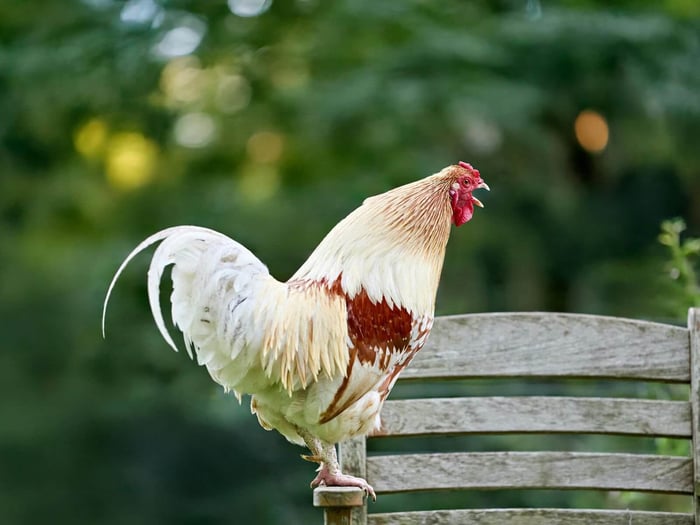
2. Chickens smell terrible.
This backyard chicken myth might be the biggest reason people hesitate to start a flock — and it’s just not true. A clean coop doesn’t smell bad at all. In fact, most chicken keepers will tell you their coop smells better than their compost pile.
The secret is simple: good ventilation and fresh bedding. Keep things dry, scoop out droppings regularly, and your coop will smell like wood shavings and sunshine, not a barnyard.
3. Chickens are dirty animals.
If anything, chickens are clean freaks. They dust bathe — rolling around in dry dirt or sand to clean their feathers and keep pests away.
This backyard chicken myth has scared plenty of people who don’t realize that dust bathing is their version of self-care. Give your flock a spot to dig and fluff, and they’ll handle their own hygiene just fine.
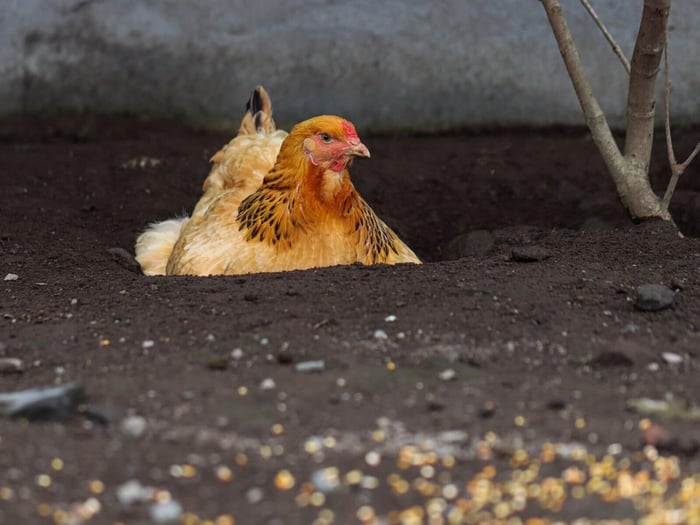
4. Raising chickens takes too much time.
We get it — between work, kids, and everything else, who wants to add more chores? But here’s the truth: taking care of a flock is simpler than it sounds.
Feeding, watering, and collecting eggs take less time than walking a dog. With a well-designed coop (especially one that’s easy to clean and predator-proof), daily chicken care becomes second nature — and honestly, kind of relaxing.
Don’t let backyard chicken myths convince you this is some huge time commitment. It’s about as much work as tending a garden, and a lot more fun.
Photo idea: Parent and child scattering feed in the yard — lighthearted, everyday scene.
5. Chickens attract rodents and pests.
Yes, rodents will come running if there’s spilled feed sitting out, but that’s not because of the chickens. It’s because of the food. Store your feed in a metal bin, keep the coop tidy, and pests won’t be a problem.
This backyard chicken myth unfairly blames the birds when the real issue is coop management. A few easy habits keep things clean and critter-free.
6. You can only raise chickens if you live in the country.
This might be one of the most frustrating backyard chicken myths out there, and it couldn’t be further from the truth! You don’t need acres of land, a red barn, or a tractor to raise chickens successfully. In fact, more people are keeping chickens in suburban and even urban backyards than ever before.
Many cities now allow small backyard flocks (often three to six hens) within city limits. And with modern coop designs that are compact, quiet, and easy to clean, raising chickens fits perfectly into neighborhood life. Your hens will be happier with a bit of space to roam, but even a small fenced area or run gives them plenty of room to scratch, sunbathe, and do all their chicken things.
What’s great about backyard chicken keeping is that it adapts to you. Whether you’re on a half-acre homestead or a cozy suburban lot, a well-built coop and a few hens can thrive anywhere. Chickens are remarkably resilient, and as long as you give them protection from predators, proper ventilation, and daily care, they’ll reward you with fresh eggs and endless entertainment, no farm required!
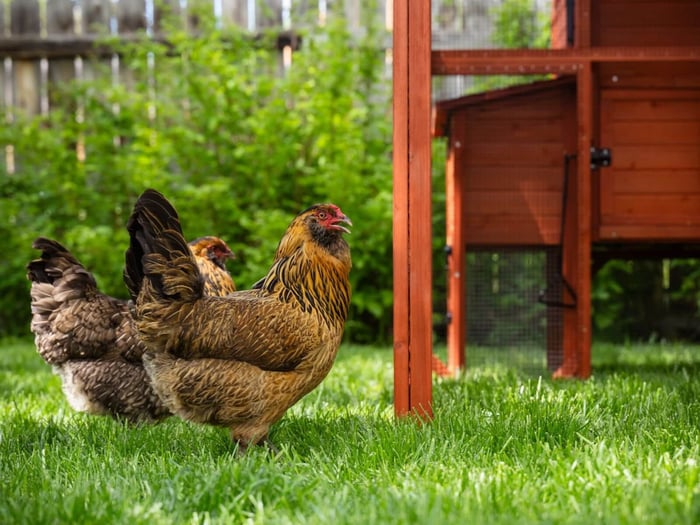
7. Chickens aren’t affectionate or smart.
Spend a few days around chickens and you’ll know this backyard chicken myth couldn’t be further from the truth. Chickens recognize faces, respond to their names, and even form little cliques within the flock.
Some like perching on your shoulder. Others will follow you around like a puppy. Every bird has a personality — and that’s half the joy of chicken keeping.
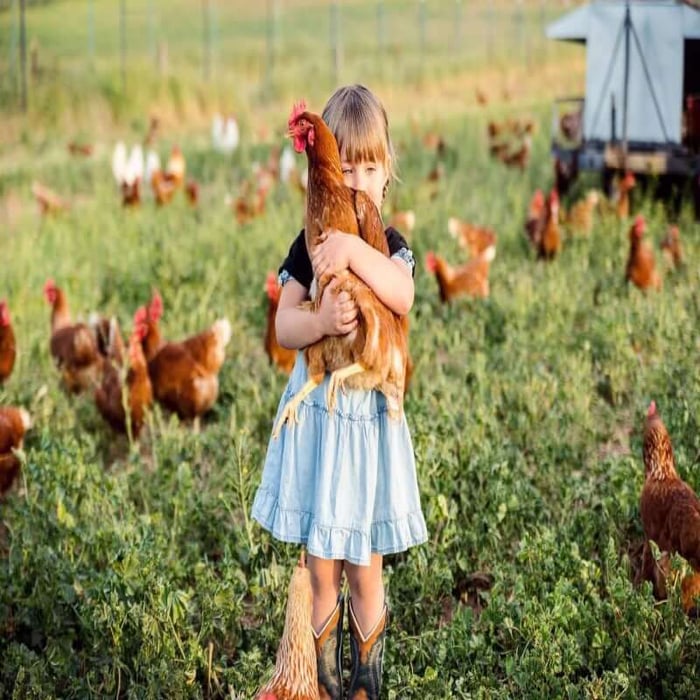
8. You’ll save money raising chickens.
If you’re hoping your hens will pay your grocery bill, this backyard chicken myth might disappoint you. Between feed, bedding, and coop costs, you probably won’t save money — but you’ll gain something far more valuable.
You’ll know exactly where your food comes from. You’ll get to watch your kids learn about caring for animals. And you’ll collect eggs that taste better than anything you’ll ever buy at a store. That’s worth every penny.
Photo idea: Family gathering eggs together with smiles.
9. Chickens are noisy!
This backyard chicken myth comes up in just about every conversation with someone new to chicken keeping. People hear “chickens” and instantly picture a rooster crowing at sunrise. But here’s the thing: hens are actually pretty quiet. They do cluck, often referred to as the "egg song", before or after they lay their eggs, or the occasional chat with each other, but most of the time, they’re quieter than a barking dog or lawnmower.
If you’re worried about noise, skip the rooster. Roosters can be loud, but it's in their nature! A small flock of hens makes gentle sounds that blend right into a typical backyard. Most neighbors won’t even notice, until you start sharing fresh eggs, that is.
10. Chickens can handle any weather on their own.
Chickens are hardy, but they’re not invincible. This backyard chicken myth leads people to skip proper weather prep — and that’s where problems start.
They don’t need a heater blasting in the coop, but they do need dry bedding, a draft-free roost, and access to unfrozen water. When you give them the right setup, your flock will handle winter just fine.

The Truth About Backyard Chickens
Here’s the thing: backyard chicken myths make chicken keeping sound complicated or messy, but it’s really not. With a little planning and a good setup, raising chickens is simple, safe, and seriously rewarding.
You don’t need acres of land or endless free time. You don’t need a rooster. You just need the willingness to learn and the right tools (and maybe a sense of humor when your hens start chasing grasshoppers).
FAQs
Are backyard chicken myths really that common?
Yes, most first-time chicken keepers hear at least one of these myths before they even buy a coop. The key is knowing what’s true so you can start confidently.
Do chickens really make good pets?
Absolutely. They’re friendly, curious, and easy to care for. Once you spend time with them, you’ll realize they’re much more than “just farm animals.”
What’s the biggest backyard chicken myth you hear most often?
That chickens smell bad or take too much work. Both are false when your coop is set up right.
What do I need to start raising chickens?
A coop, a safe run or yard, feed and water setup, and a few hens. Start small and grow as you gain confidence.
How can I help stop spreading backyard chicken myths?
Share your real experience! When others see how easy and rewarding chicken keeping is, those myths won’t stand a chance.
What’s an easy way to get others interested in chicken keeping?
Start by sharing your favorite parts — fresh eggs, funny chicken moments, or how simple daily care really is. A few stories (and maybe a dozen eggs) are often all it takes to inspire someone to start their own flock.


.png)
